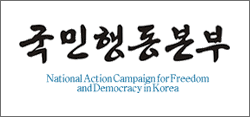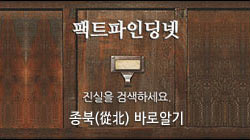Marx, then, was unwilling either to investigate working conditions in industry himself or to learn from intelligent working men who had experienced them. Why should he? In all essentials, using the Hegelian dialectic, he had reached his conclusions about the fate of humanity by the late 1840s. All that remained was to find the facts to substantiate them, and these could be garnered from newspaper reports, government blue books and evidence collected by earlier writers, and all this material could be found in libraries. Why look further? The problem, as it appeared to Marx, was to find the right kind of facts: the facts that fitted. His method has been well summarized by the philosopher Karl Jaspers:
The style of Marx's writings is not that of the investigator. . . he does not quote examples or adduce facts which run counter to his own theory but only those which clearly support or confirm that which he considers the ultimate truth. The whole approach is one of vindication, not investigation, but it is a vindication of something proclaimed as the perfect truth with the conviction not of the scientist but of the believer.
In this sense, then, the 'facts' are not central to Marx's work; they are ancillary, buttressing conclusions already reached independently of them. Capital, the monument around which his life as a scholar revolved, should be seen, then, not as a scientific investigation of the nature of philosophy, a tract comparable to those of Carlyle or Ruskin. It is a huge and often incoherent sermon, an attack on the industrial process and the principle of ownership by a man who had conceived a powerful but essential irrational hatred for them.
그때 Marx는 산업에 있어서 노동 조건을 자신이 직접 조사하거나 그런 노동 조건을 경험한 똑똑한 노동자들로부터 배울 뜻이 없었다. 그가 왜 그렇게 해야 하나? 모든 본질적인 문제에 있어서, Hegel의 변증법을 이용하여 1840년대 말경에 그는 이미 인류의 운명에 관해서 결론에 도달해 있었기 때문이다. 남은 것은 모두 그 결론을 구체화할 사실들을 발견하는 것이었고, 이 사실들은 신문 보도와 정부 보고서(blue books: 청서)와 이전의 저자들에 의해 수집된 증거로부터 획득될 수 있었으며, 그리고 이 모든 재료들은 도서관에서 찾을 수 있었다. 왜 더 이상 찾아볼 것인가? Marx에게도 그렇게 보였던 같은데, 문제는 올바른 종류의 사실을 찾아내는 것이었다: 딱 들어맞는 사실(을 찾는 것이었다). 그의 방법은 철학자 Karl Jaspers에 의해서 잘 요약되었다:
〈Marx의 글 쓰는 방법은 연구자의 방법(that)이 아니었다. …그는 사례를 인용하지 않았고 그의 이론에 반대가 되는 사실은 예증하지 않고 그가 궁극적 진리라고 생각하는 것을 분명히 지지하거나 확인하는 사실만 예증하였다. 전체적인 방법(approach)은 옹호이지 조사가 아니었고 그것은 과학자가 아닌 신앙인의 확신을 가지고 완벽한 진리라고 선포되는 것을 옹호하는 것이다.〉
게다가(then), 이런 의미에서 ‘사실들’은 Marx의 연구에 중심적이지 않았다; 사실들은 그것들과는 관계없이(independently of) 이미 내린 결론을 떠받쳐주는 부수적인 것이다. 그래서 그가 일생동안 그 주위를 빙빙 돌았던 기념탑인 “Capital”(자본론)은 철학의 본질에 관한 과학적 연구(investigation)로, Carlyle 혹은 Ruskin의 연구(investigation)와 비교할 수 있는 연구로 간주되어서는 안 된다. 그것은 거대하고 가끔 비논리적인 설교이며 산업적 과정(process)과 소유권의 원칙에 대해, 강력하지만 근본적으로 비합리적인 증오심을 잉태한, 한 사내의 공격이다.
*해설:
공산주의는 지난 100여 년간의 실험에서 완전히 실패하였다. 동서양의 무수한 사람들이, 최고의 지식인으로부터 문맹자까지, 부자에서 거지까지, 성자로부터 깡패에 이르기까지, 공산주의에 迷惑(미혹)되어 공산주의는 인간 사회의 모든 악을 근본적으로 퇴치할 수 있는 묘약이라고 생각하게 되었다. 특히 계급적 불평등을 근본적으로 영원히 제거할 수 있는 절대적인 사상이라고 착각하였다. 유토피아를 갈망하는 많은 이상주의적 청년들이 공산주의 운동에 희생적으로 뛰어들었다. 이들은 목숨도 아끼지 않았다.
지난 100여 년 동안 공산주의자들은 혁명으로, 전쟁으로, 폭력으로, 때로는 민주적인 선거를 통해서 국가권력을 장악하였다. 중국과 러시아 같은 거대 국가와 아프리카나 아시아의 신생국가와 남미의 나라들이 사회주의 체제를 도입하였다. 한반도도 절반이 공산당 수중에 들어갔다. 그 결과는 인류역사상 유례가 없는 재앙이었다. 1억 이상의 무고한 인민이 학살되었다. 참담한 빈곤이 일상적인 현상이 되었다. 공산주의 국가는 북한처럼 예외 없이 권력자들이 대놓고 거짓말하고 대놓고 사기를 치고 대놓고 인민을 약탈하고 대놓고 개인숭배를 강요하고 대놓고 수용소를 만들고 대놓고 사람을 죽이는 악령의 나라가 되었다. Karl Marx가 자신만만하게 예언하였던 지상낙원은 허망한 꿈으로 끝나고 공산주의 나라마다 역사상 최악의 생지옥이 되었다.
그런데도 개발도상 국가는 물론 서구의 부유한 서구에서도 공산주의자들이 혁명이나 폭력이 아닌 합법적으로 권력을 잡는 일이 흔하다. 선거를 통해서 유권자 다수의 지지로 집권을 하게 된다는 말이다. 심지어 자유민주주의의 원조인 영국에서도 극좌 지도자가 정권장악 직전까지 가기도 하였었다. 공산북한과는 아예 비교가 안 될 정도로 자유롭고 부유한 대한민국에서도 공산주의자들이 국가권력을 장악하는 일이 있었고 앞으로도 그 가능성이 매우 높다. 왜 유권자들은 이렇게 自害(자해)의 멍청한 짓을 반복하는 걸까? 인간은 정치적 판단에서는 분별력을 상실하고 바보같은 짓을 하기 쉽기 때문이다.
(계속)












 朴承用
朴承用







 트위터
트위터 페이스북
페이스북 네이버
네이버




























